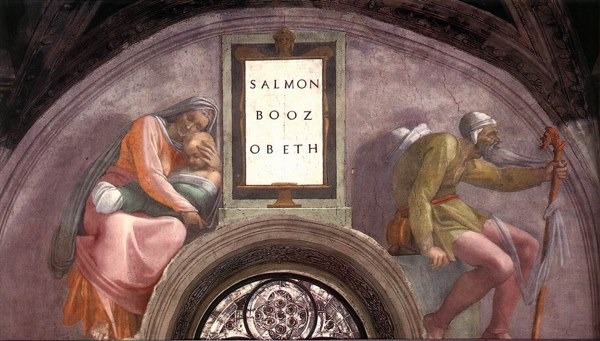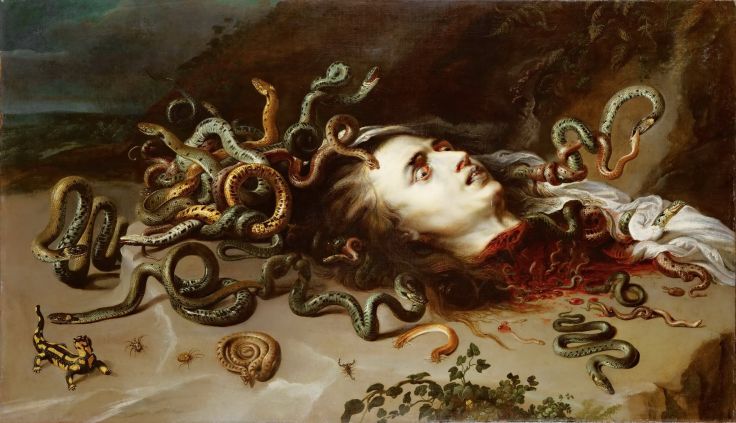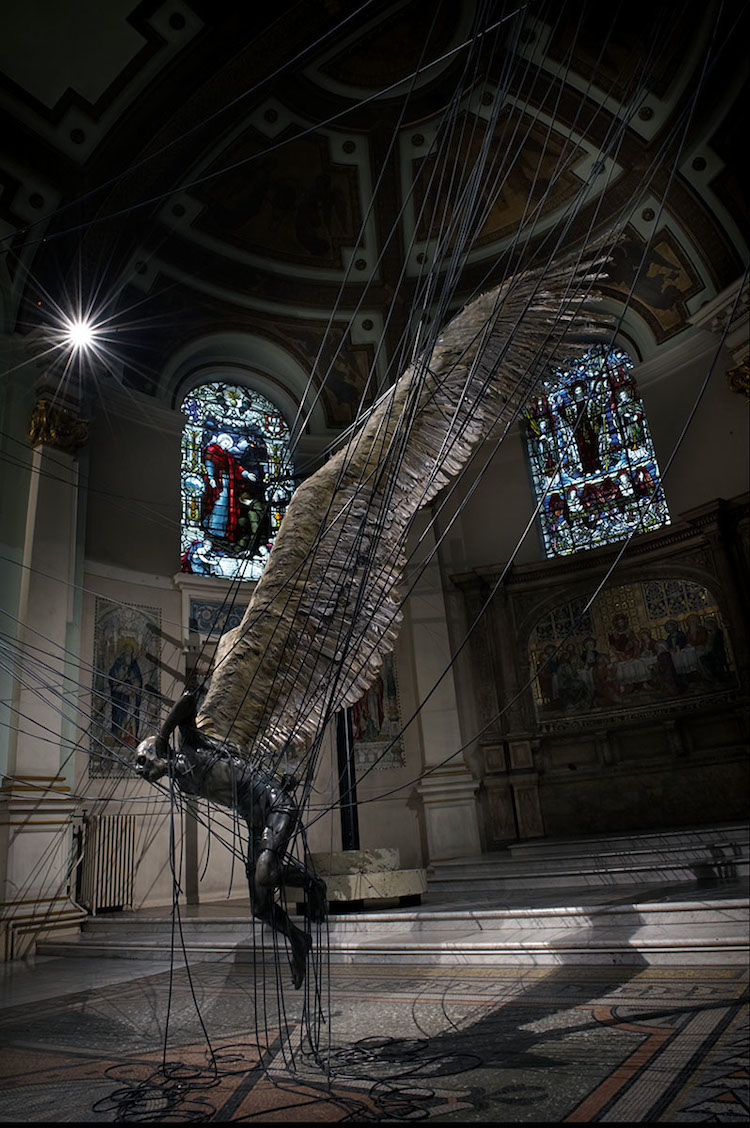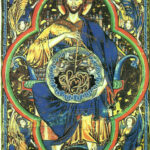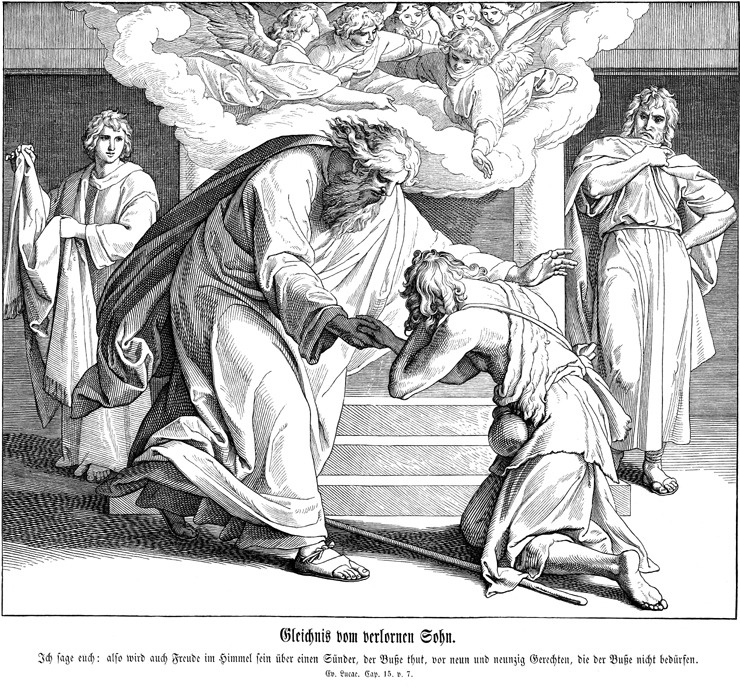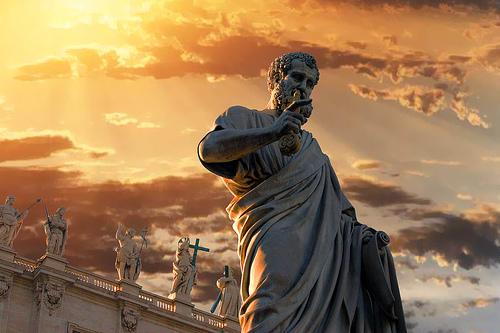In the Ancient Craft of Masonry, Hiram is called the architect of the Temple and the Widow’s Son from the tribe of Naphtali who was the son of a Tyrian bronze worker, contracted by Solomon to cast the bronze furnishings and ornate decorations for the new temple.
It is said that from this reference, the term “Son of the Widow” is synonymous with Freemason and all Freemasons are designated as “Sons of the Widow,” or sons of Hiram. (1)
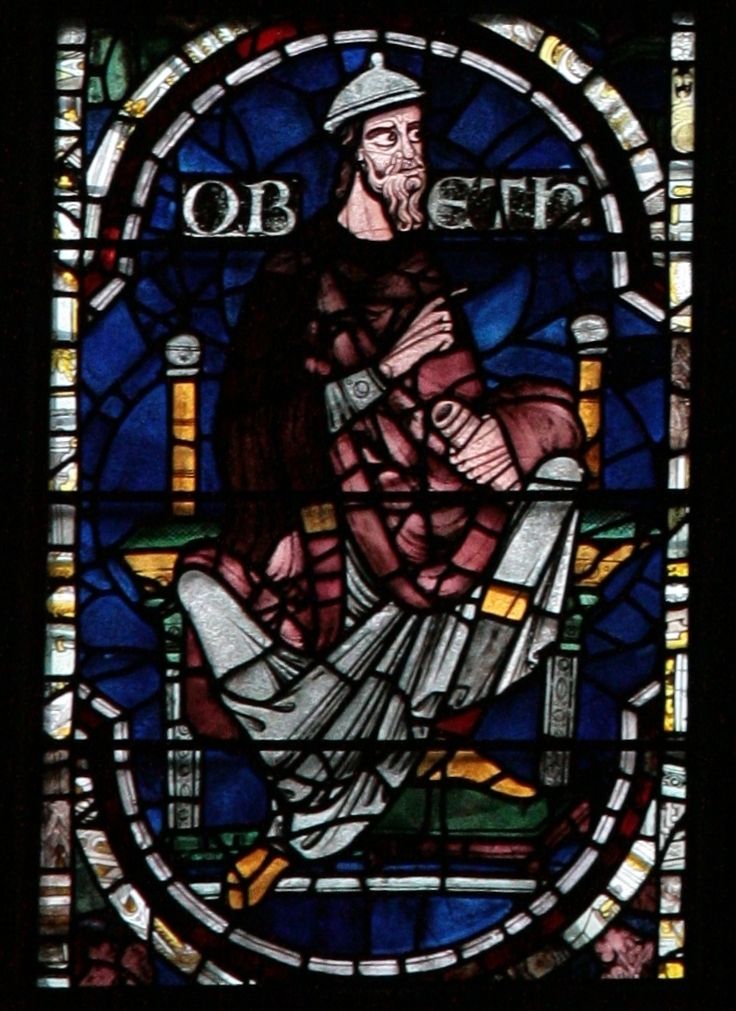
For such an important person, you would think that there would be some information regarding the true identity of this man, but if we study Masonic literature, the Bible and ancient history, you will not find one person who is named “Hiram Abiff”.
The name Hiram Abiff is only used in Freemasonry.
However, when we research Freemasonic history along with both the Old and New Testaments, we will discover that the name Abiff appears to be derived from the title Ob, Obe, Obi, Ab or Abi which means father or my father and was among the Hebrews (Phoenicians) often bestowed as a title of honor and dignity, on the chief advisers and intimate friends of the king. (2)
The person who I have found to be one of if not “the most important widow’s sons” in both the Old and New Testament was a man known as “Obed or Obediah” which I believe the modern Masonic version of the name “Hiram Abiff” is meant possibly to both conceal and represent the same person.
The names of “Obed or Obadiah” were common in Israel for the Tribe of Judah from the days of David and I believe that Abiff or Abi (Obe, Oba etc) are just different spellings of the same name throughout time depending on the language and or era it was written.
It appears that this particular family had a tradition of using the appellation of either Abi, Abdi or Obe to their names that signify their royal rank both as “Patriarchs (Fathers or Peters) and judges of their people (race).”
Names related and or connected to Obed or Obadiah such as Badiah, Obadyah or Obadyahu and old Phoenician as Ebed or Abad, Abibalus, the Greek as Ióbéd and Obed; Septuagint is Obdios and Jehoiada, or as Abadias (ab-a-di’as), and Abdiou and afterward Obed-edom and his sons were assigned to be keepers of the doors of the temple, (1 Chron.)
When we tie these names and thus history together into the true meaning of the name “Hiram Abiff”, what we will find is that the appellation of the “Widow’s Son” does not apply to King Hiram’s son, but most likely to his father whose name who was really the first King of the Hebrews (Tyre/ Byblos/Phoenicians).
For example, some names found related to Abi (Abdi, Obe, Oba, etc.) are, for example, Abijah which is translated “Yahweh is a father,” or “is my father” which is found in the parallel passage in 2 Chronicles 29:1 and Abishai, “father of Jesse,” denotes one to whom Jesse is father, and so with Abihud, “father of Judah,” Abiel, “father of God, and more importantly as it relates to this story, Abidan is “father of a judge.”
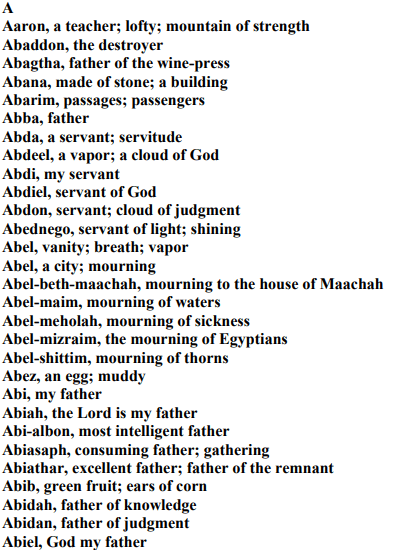
In relation to the story of Hiram Abiff as a servant for Kings David and Solomon of Isreal, you will also find a servant in the Bible a prophet of Baal, a Levite named Obadiah who is one of the most important men in the Old Testament being that he is;
1. The governor of the King of Isreal, Ahab’s palace (1 Kin. 18:3-7, 16).
2. Grandfather of King David and the head of a family of Judah (1 Chr. 3:21).
As you can witness for yourself, this man, Obadiah was a very important person who was not only the governor for the King of Israel’s palace (AKA the Temple), he was also the grandfather of King David and the head of a family of Judah.
Last but not least and has it relates to this story, he was the son of the most important widow of the Old Testament. Let me please explain…
If we are to research the history of the Old Testament (Law), we will find that there was only one person who we can truly document that could be “legally” identified as a “widow’s son” under the old Phoenician (Hebrew) laws in Israel.
In ancient Israel, if a wife’s husband was to die without children, it was looked upon with great unhappiness for a man to die without an heir. Widowhood, as well as barrenness, was a kind of shame and reproach in Israel: Isa. liv. 4, “Thou shalt forget the shame of thy youth,” passed away in celibacy and barrenness, “and shalt not remember the reproach of thy widowhood any more.”
This is why a “widow” was allowed to marry the brother of her deceased spouse, in order to raise children and the continuation of estates in the same family and to perpetuate a man’s name in Israel which became a law.
As I mentioned in a previous article, Abibalus: King Hiram’s Father is the Widow’s Son, who is a prime example of a VERY IMPORTANT widow marrying in such fashion in the bloodline of Hiram is Ruth, who married Boaz, after she had been refused by a nearer kinsman.
Of course, Freemasons will recognize the name Boaz is one of their main symbols of the teachings of Masonry in which Boaz was one of the two pillars which stood on the porch of Solomon’s Temple, the First Temple in Jerusalem and also the Tribe of Judah (Masonic Archons).
Please keep in mind that Boaz is the name of the left hand, or north pillar, that stood at the porch of King Solomon’s Temple.
Ruth is said to be a “Moabitess, having been married to the son of Elimelech, of the tribe of Judah, after the death of her husband and father-in-law, accompanied Naomi, her mother-in-law, into the land of Israel, from love to her, and to true religion.”
They arrive in Bethlehem at the beginning of barley harvest in a state of dire poverty and after the death of her son, Naomi was going to sell “her son’s inheritance and land” unless she can find a Goel who could assert his inheritance rights through her daughter in law, Ruth.
The meaning of Goel comes from the word lig’ol (“to redeem”), hence meaning “redeemer”, or a person who is the closest relative charged with the duty of restoring the rights of another and avenging his wrongs.
In Mathew, the great Masonic secret is revealed, “Boaz begot Obed by Ruth, Obed begot Jesse, and Jesse begot David the king.” (Matthew 1:5–6 NKJV) Boaz is said to be of the clan of Elimelech (Judah) – meaning “God is King or My God if King.”
Boaz was from a royal family and he was also a wealthy landowner and businessmen in Bethlehem when he met Naomi and her daughter-in-law Ruth who we know had the legal rights to the “Crown of Israel”.
By marrying Ruth, he would relinquish his former ancestral rights before the elders of the city, and by legal process gave up his claim, Boaz by marrying Ruth possessed the whole right of Elimelech ie: Israel.
Interestingly, when we search for more information and or history about one of the most important Old Testament prophets who is known as the Widow’s Son and is named Oded or Obediah, there is said to be nothing to be found in the sacred records respecting the life of Obadiah, and the time in which he lived.
But if we fast forward to today, there is a lot of history that syncretizes to who we know of as Obed or Obadiah and there is new archaeological evidence that shines a light on the widow’s son’s true name and this royal family who happens to be the true Patriarchs for the Tribe of Judah.
For example, evidence can be found via an ancient Phoenician seal bears the inscription “Obadiah the servant of the King.”
Some of this new evidence I recently revealed in my previous articles, The World’s Oldest Curse: King Hiram’s Masonic Curse and King Hiram’s Son: Ithobaal.
To recap this research, I explain that King Hiram’s son’s real name was Ithobaal (Ἰθόβαλος; Hebrew Ethbaal, Ishba’al, Latin – Ithóbalos, Εἰθώβαλος; Eithṓbalos – meaning with Baal) and King Hiram’s real name was known under many different spellings of the name Obadiah, Obadias, Ebed, Abibalus, Abidan, Abdi-Heba, Beda, etc. and or Ahirom, Ahiram, Amram, and Hiram which are Masonic alternative spellings of the same name which can all be used interchangeably.
The widow’s son who we know as Obediah in the Old Testament and many other spellings throughout time is documented by the ancient historian and priest of Byblos, Sanchuniathon or Sanchoniatho (Phoenician: 𐤎𐤊𐤍𐤉𐤕𐤍) who had dedicated his books on Phoenician history to King Abedbalos, Abibalos, or Abi’Baal (Phoenician: 𐤀𐤁𐤅𐤁𐤏𐤋, Latin: Abibalus both meaning “My father is Baal”).
He was the first king of Tyre (AKA Byblos, Berytus etc.) who reigned in the 10th century BC and it was said that Sanchuniathon’s book was approved by this king and other investigators.
The spelling of the name Abed-balos, Abi-balos, or Abi’Baal is very close to Obed or Obed-iah and the reason why I can connect him to the same person Sanchuniathon lists as Abibalos (Abibalus), king of Berytus but the Roman-Jewish historian, Josephus Flavus, writing in Latin, had written that King Abibalus was the first king of Tyre and Hiram whom he calls his son as the second king.
According to Josephus and Menander from the time of King Abibalus to the death of King Hiram’s son, Ithobaal or Ethbaal, which occurred about the time of the fall of Troy, was 169 years.
As I mentioned in the previous article, a new or rather old English spelling for Obediah for our modern era is Beda which is based on archaeologists working for the Institute of Archaeology of the Hebrew University and the Israel Antiquities Authority (IAA) discovered a 3,000-year-old clay jar with ancient Phoenician writing in which they deciphered the meaning in 2015 which read;
“Ishba’al, son of Beda”.
The meaning they say is “man of Baal, son of Beda.”
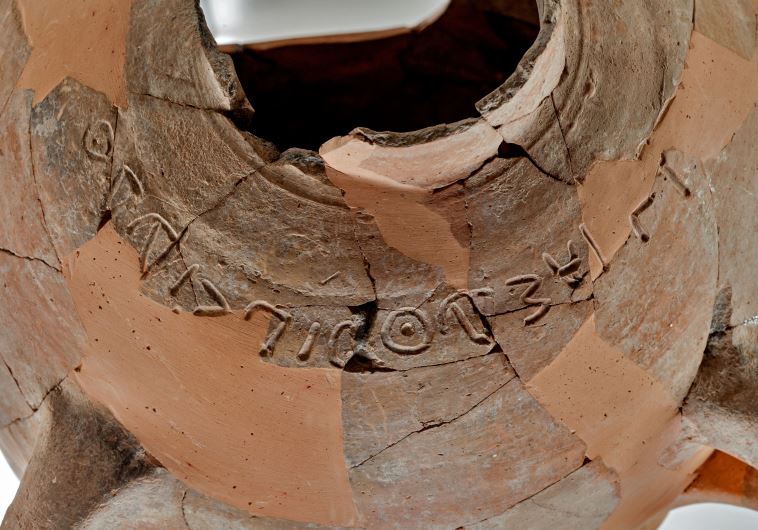
The scientists working on the discovery claimed that “The name Beda is unique and does not occur in ancient inscriptions or in the biblical tradition” but this name we can easily connect in ancient history to King Abedbalos and in the Bible to a prophet of Baal named Obadiah.
There are several Obeds or Obadiahs listed as the name of 13 Israelites in the Old Testament and as I mentioned above, the most notable is the grandfather of King David who is the son of Boaz and Ruth – the Moabite widow (Widow’s Son) Ruth 4:17, Ruth 4:21 = 1 Chronicles 2:12; Ruth 4:22
It is important to note that Obed or Obadiah, AKA the widow’s son is also listed as the governor of Ahab’s palace (1 Kin. 18:3-7, 16) and as a descendant of David, he is the “head of a family”(1 Chr. 3:21).
The reason he is considered in charge of the Tribe of Judah and a master of Jerusalem is the fact that he is a son of Boaz through Salomon whose father Nashon was appointed by Moses, upon God’s command, as prince and military commander of the Tribe of Judah and one of the leaders of the tribes of Israel.
Salmon is the patrilineal great-great-grandfather of David mentioned in 1 Chronicles 2:10-11, Ruth 4:20,21, Matthew 1:4-5 and Luke 3:32
The son of Nashon: he married Rahab, by whom he had Boaz. 1 Chron. ii. 11, 51, 54; Ruth iv. 20, 21.
Nashon’s role is variously translated as “leader” and census-taker, one of the “heads of their ancestral houses, the leaders of the tribes”, “first .. over the whole company”, and “prince of the sons of Judah”.
In the Tribe of Judah and his brothers; from Judah, Pharez and Zarah, by Tamar; from Pharez, Hezron ; from Hezron, Aram ; from Aram, Aminadab ; from Aminadab, Nashon ; from Nashon, Salmon ; from Salmon, Boaz, by Rahab; from Boaz, Obed, by Ruth.
As you can witness, Nashon is one of the most important people in the Scripture from the Old Testament given the fact that he was “legally appointed” as leader and prince of the sons of Judah whose most important son was Boaz who happened to marry a widow from another tribe named Ruth in order to produce a new son named Obed or Obediah who would then become the “widow’s son.”
Nahshon was, through Boaz, the direct male ancestor of David, and thus of Solomon and all of the kings of the Kingdom of Judah and Nahshon is also mentioned in the New Testament in the genealogy of Jesus.
With that said, Obed of the Old Testament plays a critical role in the New Testament by uniting a divided Israel of two kingdoms (Pillars of Jachin and Boaz) into one bloodline in which he represents the Widow’s Son.
Here is an image of Obed who is named Obeth at the Kent England Canterbury Cathedral in The West Window Of The Nave Stained Glass Window showing Obed in the center between what appear to be the two Masonic pillars of Boaz and Jachin.
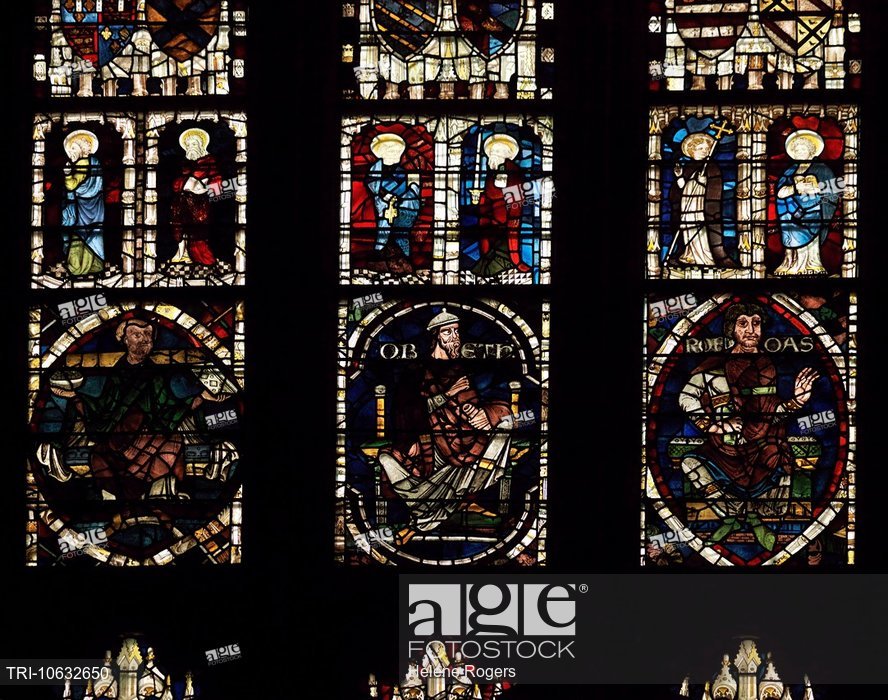
We find Obed being honored in Kent, England because this is an early medieval kingdom of Judah was said to be founded in the 5th century by a people called the Jutes – members of a Germanic people from continental Europe, some of whom settled in Britain after the withdrawal of the Romans.
Father of English History and Doctor of the Churhc, Saint Bede (lived AD 673-735) said that the King of Britain had brought the Jutes into Britain to protect his realm from Scots (from Northern Ireland) and Picts (from Scotland).
Bede had written; “The new-comers were of the three strongest races of Germany, namely, Saxons, Angles and Jutes. “Of Jutish origin are the men of Kent, and the Wihtsaetan; that is the tribe dwelling in the Isle of Wight.”
The Jutes and men of Kent play into the prophecy as I mentioned in my article, The Masonic Archons of the Tribe of Judah.
It is from the Kingdom of Kent where it has been prophesied in the bible as leading by ad hoc leaders known as Judges.
Not surprisingly, this is the precise location where we find all the Kings, Queens, Princes and Princesses of the United Kingdom hail from ruling by way of the monarchy.
The word “monarch” (Latin: monarcha) comes from the Greek language word μονάρχης, monárkhēs (from μόνος monos, “one, singular”, and ἄρχω árkhō, “to rule” (compare ἄρχων arkhon, “leader, ruler, chief”) which referred to a single, at least nominally absolute ruler of hereditary rule.
Hence, the reason in the bible why this tribe is referred to as leading by ad hoc leaders known as Judges to rule “their people,” and why currently out of 44 nations, 16 of them recognise Queen Elizabeth II as their head of state.
In addition, today we find their Masonic descendants represented in the Old Kingdom of Jute, which was originally Juteland or the land of the Jutes, and is now known as the Kingdom of Kent. Jutland, is regarded as Judah’s land. An adjective for Jute is “Jutish,” pronounced jootish.
The Grand Master of Freemasonry from the Kingdom of Judah AKA Kent, and is called the Duke of Kent.
According to the prophecy of Jacob, concerning the time of the corning Messiah, “Obed begat Jesse, and Jesse begat David, of whom, Christ came, who is God over all blessed forevermore.” (Gen. xlix. 10)
To be continued…
SOURCES:
1. Source: Mackey’s Encyclopedia of Freemasonry
2. A Lexicon of Freemasonry (Page 137) Albert Gallatin MACKEY – 1845
3. Other sources noted above and or can be easily researched using Google 😉

Moe is the founder of GnosticWarrior.com. He is a father, husband, author, martial arts black belt, and an expert in Gnosticism, the occult, and esotericism.

